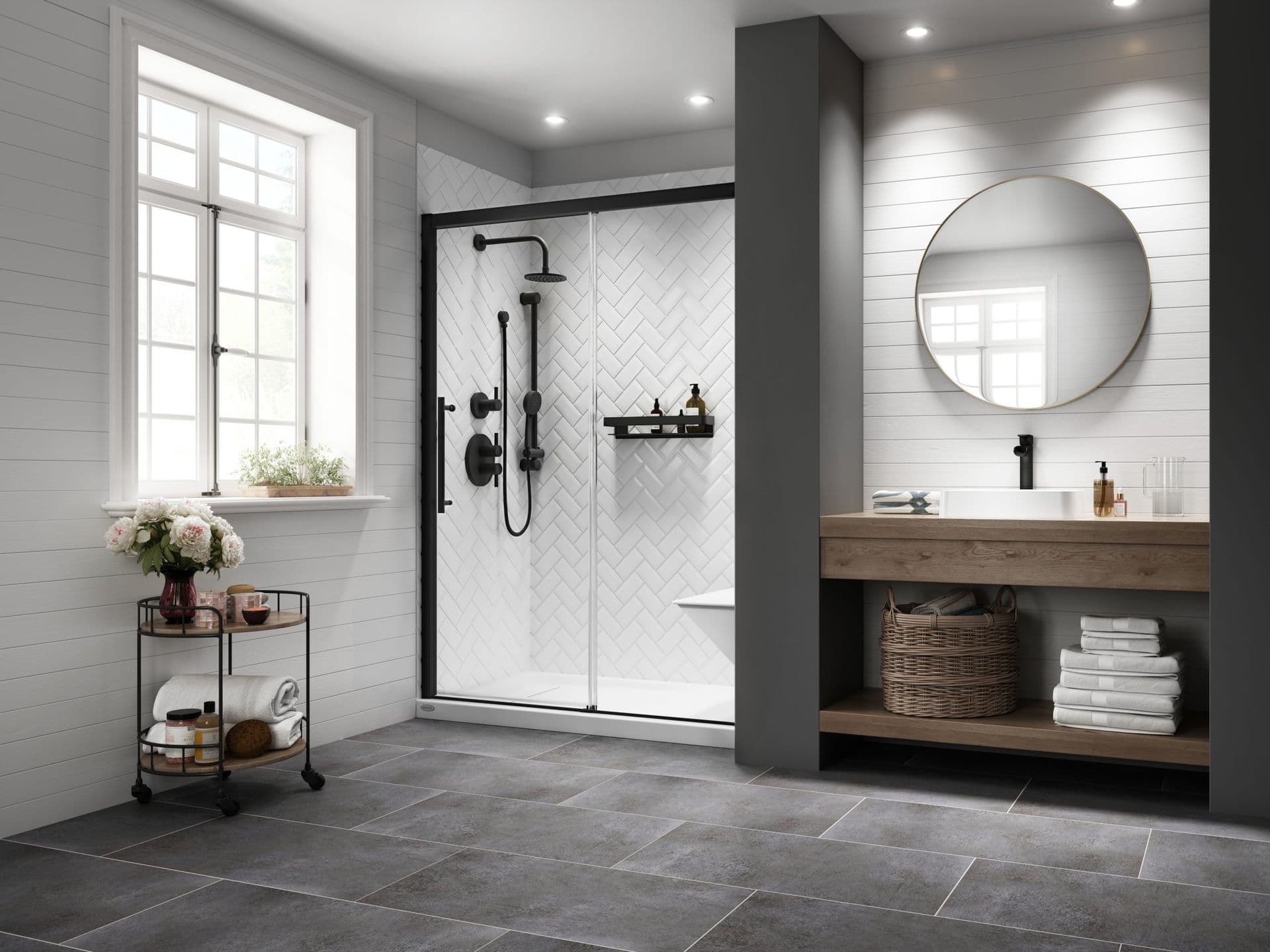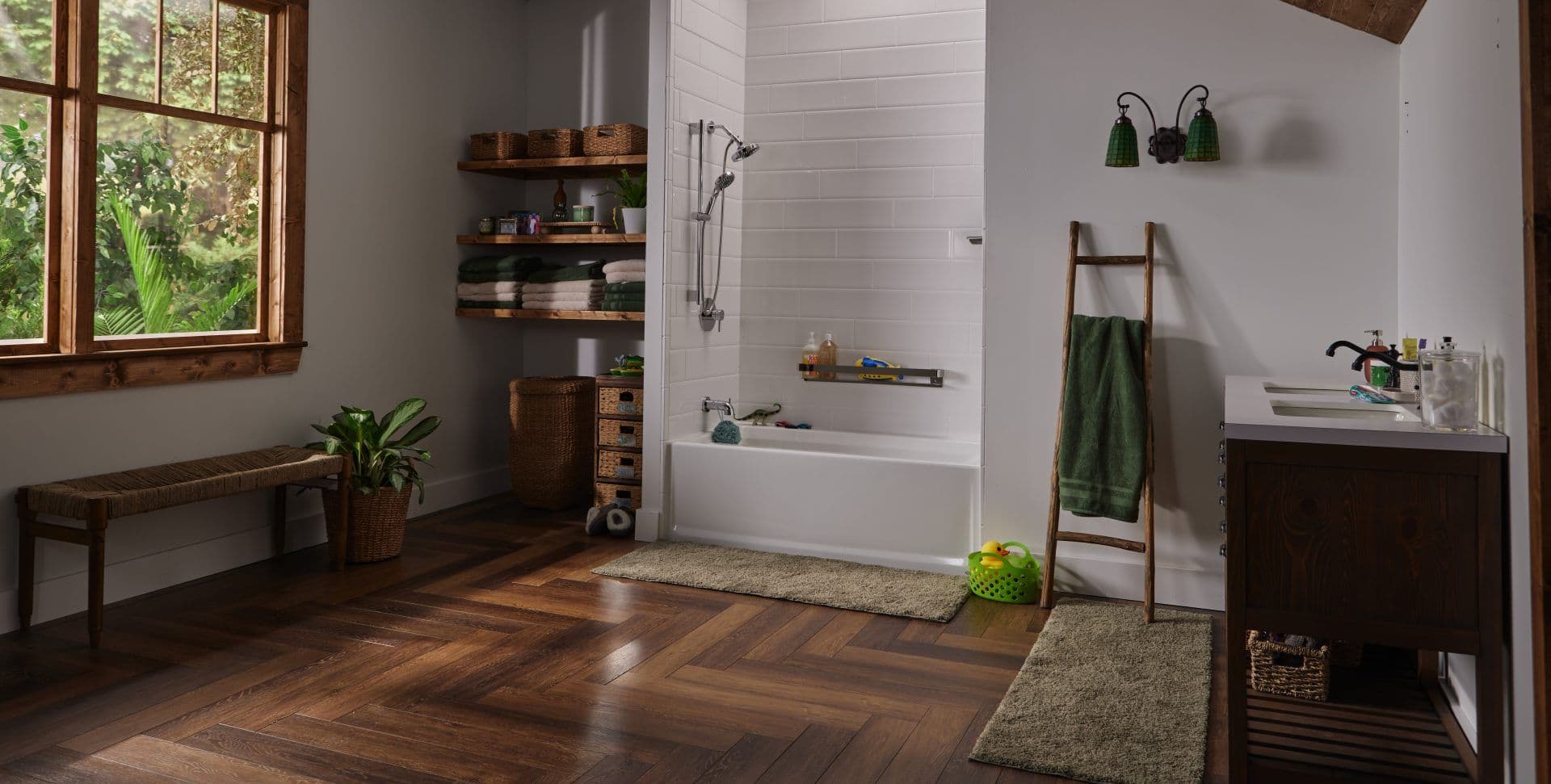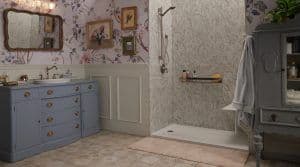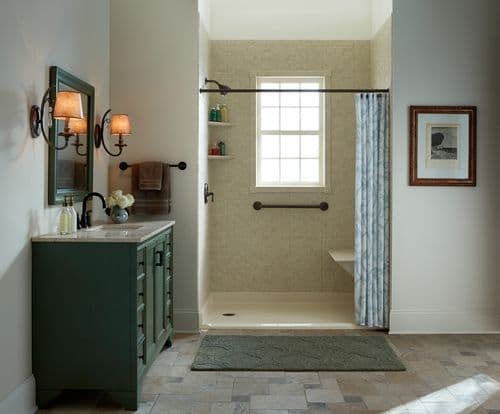How to Choose the Right Vanity for Your Bathroom Remodel
The vanity is often the centerpiece of your bathroom, combining functionality with aesthetic appeal. Choosing the right vanity can make or break the design of your bathroom remodel, so it’s essential to consider several factors before making your decision. In this guide, we’ll walk you through everything you need to know to choose the perfect vanity for your space.
1. Size and Proportion
One of the first considerations is the size of the vanity in relation to your bathroom. A vanity that is too large can overwhelm the space, while one that is too small may not provide adequate storage or counter space. Measure your bathroom carefully and choose a vanity that complements the room’s proportions. For smaller bathrooms, a wall-mounted vanity might be the best option, as it frees up floor space and can make the room appear larger. In larger bathrooms, a double vanity can offer more storage and counter space, making it ideal for shared bathrooms or family homes.
2. Storage Needs
Consider your storage requirements when selecting a vanity. If you have a lot of toiletries, towels, and other bathroom essentials, you’ll need a vanity with ample cabinet space. For smaller bathrooms, you might opt for a wall-mounted vanity with drawers or open shelving to maximize storage without taking up too much floor space. Think about how you use your bathroom daily—do you need easy access to certain items, or do you prefer a clutter-free countertop? The answers to these questions will help you determine the type and amount of storage you need.
3. Material and Durability
Bathroom vanities are exposed to moisture and humidity, so choosing a material that can withstand these conditions is crucial. Solid wood, plywood, and MDF (Medium-Density Fiberboard) are popular choices, each with its pros and cons. Solid wood is durable but can be expensive, while MDF is budget-friendly but may not last as long. Additionally, consider the material for the countertop—options like quartz, granite, and marble offer durability and style but come with different maintenance requirements. For instance, natural stone countertops require sealing to prevent stains, while quartz is virtually maintenance-free.

A Bathroom Vanity doesn’t have to be old fashioned and can be the centre piece of your modern bathroom.
4. Style and Design
Your vanity should reflect the overall style of your bathroom. Whether you prefer a modern, minimalist look or something more traditional, there’s a vanity design that can match your aesthetic. Consider factors like color, hardware, and countertop material when making your selection. If you’re going for a contemporary style, sleek lines and minimalistic hardware might be your go-to. For a more traditional or rustic look, consider a vanity with ornate details and a warm wood finish. The design of the vanity can set the tone for the entire bathroom, so choose one that aligns with your vision.
5. Plumbing Considerations
Finally, ensure that your vanity choice is compatible with your bathroom’s plumbing setup. This might influence whether you choose a freestanding vanity or a wall-mounted one. Consulting with a professional bathroom remodeler can help you avoid costly mistakes related to plumbing. For instance, wall-mounted vanities require the plumbing to be installed within the wall, which can be more complex and costly than a freestanding vanity that connects directly to floor-mounted pipes. Additionally, consider the placement of faucets and sinks—some vanities come pre-drilled with holes for specific faucet configurations, so ensure your selection aligns with your chosen fixtures.
6. Lighting and Mirrors
A well-lit vanity area is essential for tasks like shaving, makeup application, and grooming. Consider the type of lighting that will complement your vanity and provide ample illumination. Integrated lighting, such as LED strips around the mirror, can add a modern touch and ensure even lighting without harsh shadows. Additionally, the mirror you choose should complement the size and style of your vanity. A larger mirror can make a small bathroom feel more spacious, while a framed mirror can add a touch of elegance to a traditional vanity.
7. Budget and Installation Costs
Budget is always a crucial factor in any remodel. While it’s tempting to splurge on a high-end vanity, it’s important to balance cost with quality and functionality. Consider not just the price of the vanity itself, but also installation costs, including plumbing adjustments, countertop materials, and any additional fixtures like faucets or lighting. It’s often worth investing a bit more in a durable, high-quality vanity that will last for years, rather than opting for a cheaper option that may need replacing sooner.
In summary, the right vanity can enhance both the functionality and visual appeal of your bathroom. By considering factors like size, storage, material, style, and budget, you can select a vanity that perfectly suits your needs and elevates your bathroom remodel. Remember, your vanity is more than just a piece of furniture—it’s a central feature that will influence how you use and enjoy your bathroom every day.
4th Of July Sale
FREE Installation
Financing As Low As $125/mo
+No Interest, No Payments For 12 Months!

Get Inspired With These Gorgeous New Bathrooms
Featured Reviews
We just love our new bath/shower from BathWorks of Mi! We chose the Premium Collection, because of its classic look that blends into our bathroom so beautifully
Amazing transformation. Justin and his right hand man were here on time and worked tirelessly to get the job done by 5 pm. They were nice, professional and informative. I highly recommend.
Tex and J. were wonderful to work with. Very friendly and polite. Did an excellent job...looks beautiful. Cannot wait to use it. What a difference this is going to make in my life!
Contact Us










